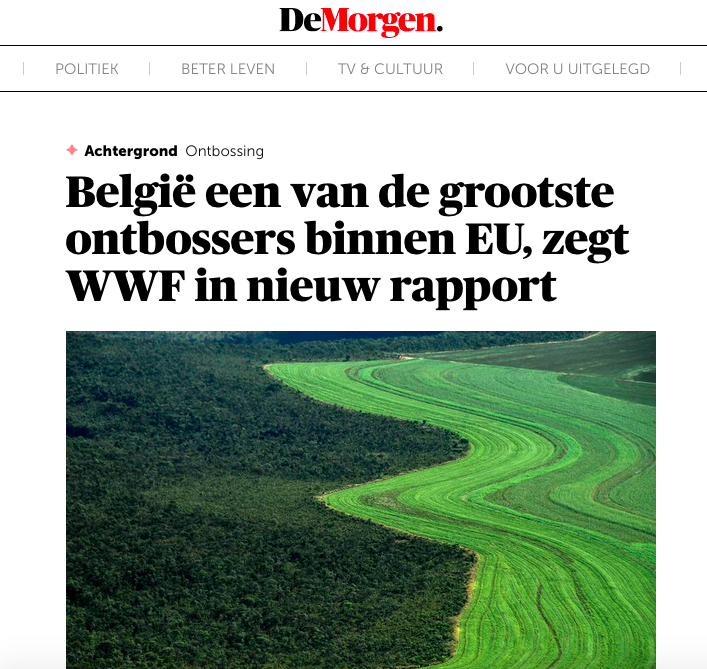On Wednesday 14 April, an article (pay wall, Dutch) appeared on the website of Flemish newspaper De Morgen on a WWF report (Dutch) on tropical deforestation. It states that Belgium is one of the largest deforesters in Europe, per capita. The claim turns out to be mostly true.
Belgium is indeed one of the European countries contributing most to tropical deforestation with 14 m²/year per capita deforestation. Only the Netherlands surpasses Belgium with 18 m²/year per capita deforestation. To know why Belgium contributes so much to the deforestation of the “lungs of the earth”, we have to look at its food industry and port activity.
Belgium has a long history in the food industry. Ever since the colonial era, Belgium has been an importer (Dutch) of various exotic raw materials such as palm oil and cocoa. “Belgium has thus a lot of experience with commodities that are responsible for a great part of deforestation today”, says Bart Muys, professor of forest ecology and forest management at the KU Leuven, Belgium. “These products are also important to the Belgian food industry. They are often products that serve as animal feed.”
Export
But Belgium also exports many of its products resulting from its food industry. “This raises the question whether the responsibility for deforestation caused by such products should not fall to the country of the final consumer”, adds Professor Muys.
Thanks to its ports, Belgium could and can import and export more easily. The port of Antwerp has a lot of port activity. Different goods first pass through Belgium, also goods that cause deforestation. And that is also a reason why Belgium can seem to be a major cause of deforestation.
Conclusion
Belgium is technically one of the largest deforesters in the EU, second after The Netherlands. This is mainly due to the large port activity and the food industry. But who is ultimately responsible for deforestation is difficult to determine, because many of the final products are exported again. So the claim is mostly true.
RESEARCH | ARTICLE © Thabo Xulu, Martha Van den Eede, Ezra Cnaepkens, AP University College Antwerp, Belgium
Leave your comments, thoughts and suggestions in the box below. Take note: your response is moderated.






